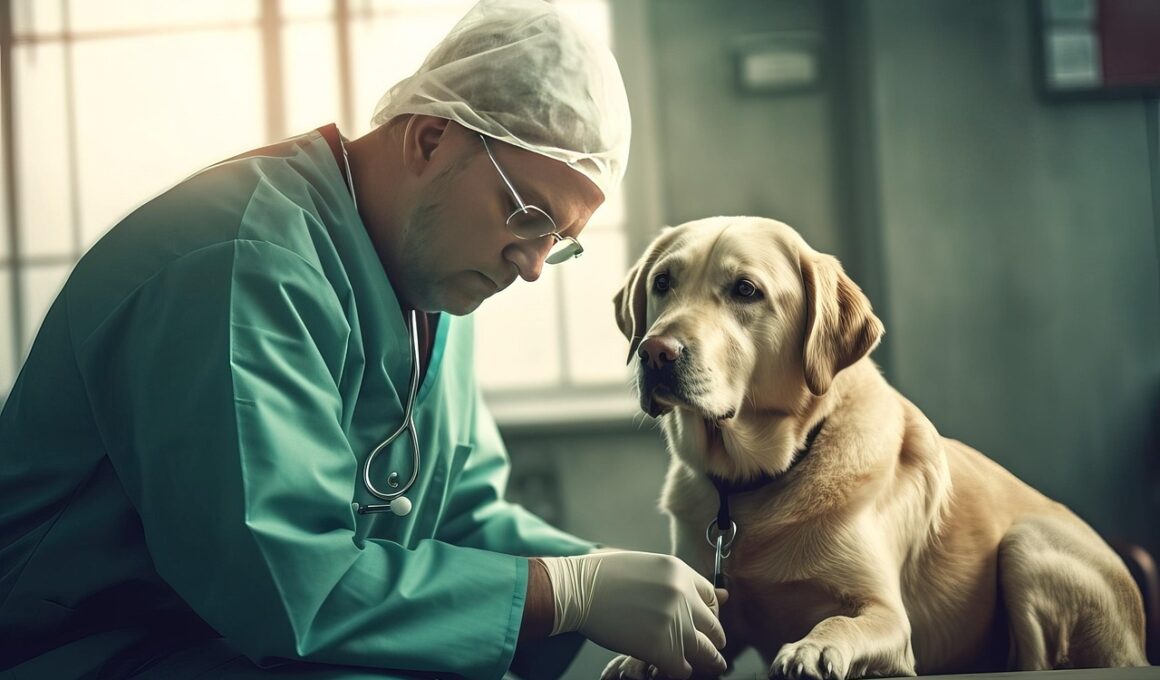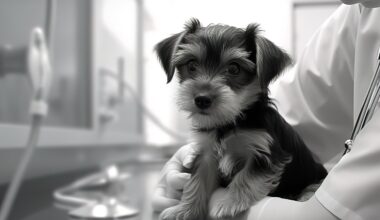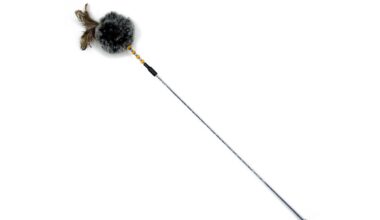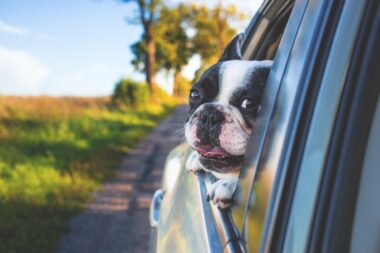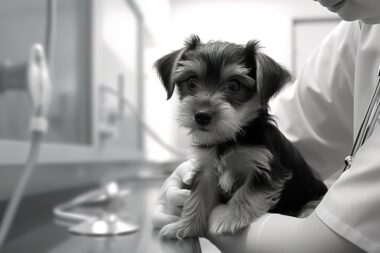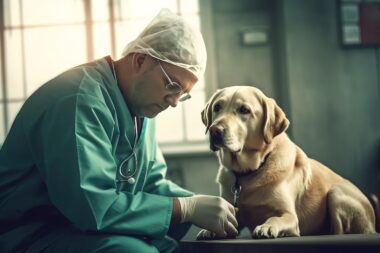Post-Vaccination Care Tips After Travel Vaccinations for Dogs
After your dog receives their travel vaccinations, it’s crucial to monitor their health closely for any side effects. Sometimes, dogs might experience mild symptoms such as fever or localized swelling at the injection site. Be sure to offer your dog plenty of fresh water and a comfortable, quiet space to recover. Keep an eye on their behavior and appetite, as these can be indicators of how they’re feeling. If you notice any unusual signs, such as vomiting or lethargy, contact your veterinarian for advice. Proper rest is key; discourage vigorous play or exercise for a few days post-vaccination. You may want to keep their walking routine light to ensure they don’t overexert themselves while their body adjusts to the vaccine. Familiarize yourself with the potential symptoms of vaccine reactions, which can include allergic reactions or more serious complications. Maintaining a calm environment at home will aid your dog’s recovery, ensuring they feel safe and supported during this important time.
Monitoring Your Dog’s Health
Monitoring your dog’s health after vaccinations is essential for ensuring their well-being. Keep a journaling system to track their food intake, behavior changes, and any signs of discomfort. This can help pinpoint if any specific factors correlate with their post-vaccination experience. Ensure they have access to a comfortable sleeping area, where they can rest undisturbed. It’s also important to maintain a stable temperature in your home, keeping your dog comfortable without overheating. Keep a watchful eye for any signs of distress. If your dog displays excessive whining, scratching, or any unusual behavior, it’s advisable to consult your veterinarian. Additionally, always ensure their vaccinations are documented and that you have a plan for any potential side effects that require medical attention. Open communication with your vet will help you understand what is typical post-vaccination, which can alleviate worry and improve your response should any issues arise. Encourage gentle interactions with family members during their recovery phase, to ensure they feel loved and supported throughout the healing process.
Post-vaccination, maintaining proper diet and hydration is vital for your dog’s recovery. Begin by offering their regular food, but be flexible if they show a decrease in appetite. You may need to provide enticing alternatives like wet food or adding warm water to dry kibble to make it more appealing. Always provide fresh water to keep your dog hydrated. Ensure that they drink enough, as hydration aids in smooth recovery from any inoculation-related stress. A balanced diet rich in proteins, fibers, and vitamins will help enhance their immune system and combat any potential discomfort from vaccinations. Supplements like probiotics may also be beneficial to support their gut health. Avoid introducing new foods during this period to prevent digestive upset, as consistency is key. If your dog doesn’t eat for more than 24 hours, consult your veterinarian. Sometimes, special dietary adjustments may be needed. In the case of dogs with sensitive stomachs or prior health issues, keeping a close eye on their diet helps promote a faster and smoother recovery after they receive travel vaccinations.
Rest and relaxation are equally crucial after your dog’s travel vaccination. Create a cozy and inviting space for them to unwind without disturbances. A favorite blanket or bed can provide a sense of security while they rest. Reducing exposure to loud noises, unfamiliar pets, or stressful environments is also beneficial during this recovery phase. Keeping their environment calm promotes healing and can alleviate stress levels. Limit interaction with high-energy pets that could provoke excitement or anxiety. Instead, opt for quiet bonding time, such as gentle petting or soothing talk. If your dog enjoys quiet activities like chewing toys or exploring low-stimulation areas in your home, encourage those. Monitor their energy levels closely, and let them dictate the pace of activities. Engaging in light support, like walking only when they are comfortable, ensures they don’t push themselves too hard. Rest is as crucial as any other element of their care, as it allows their immune system to function optimally post-vaccination. Aim to keep their main activity focused on calming engagement during this time.
Understanding Vaccine Reactions
Understanding potential vaccine reactions will make you better prepared to care for your dog after their travel vaccinations. Some dogs may experience mild reactions, but serious side effects are rare. Common effects can include fever, lethargy, and reduced appetite. Such symptoms typically resolve within a day or two. Monitor your dog closely during this period. If their symptoms persist beyond what’s usually expected or escalate in severity, seek veterinary assistance immediately. Allergic reactions can occur but often present soon after vaccination. If your dog exhibits excessive swelling, difficulty breathing, or other severe symptoms, contact your veterinarian without delay. Knowing your dog’s vaccination history enables a more tailored approach to their post-vaccination care. Discuss any past reactions with your vet so they can provide personalized care instructions. Keeping a list of recent vaccines and appointments helps inform your vet of any concerns. Reactions may vary based on the vaccines given; understanding this individualized response will guide your observation and response approach following vaccinations.
Scheduling a follow-up appointment with your veterinarian is a good practice after your dog receives travel vaccinations. These appointments allow you to discuss any post-vaccination symptoms or concerns you may observe. Regular veterinary check-ups can provide reassurances regarding their health status and keep their vaccinations on track. During this follow-up, your vet will assess your dog’s recovery progress and address any lingering concerns. Your veterinarian may note if your dog had particular reactions, driving future vaccination considerations. Proper vaccination and post-care routines are essential to your dog’s health, echoing throughout their lifetime. Always keep your vet updated with any changes in your dog’s behavior or health. Use these visits as opportunities to educate yourself further about canine health. Knowledge about vaccinations, side effects, and general dog care can empower you as a pet owner. A cooperative relationship with your veterinarian will ensure your dog’s ongoing health and provide you with peace of mind in the years to come, particularly when planning any future travels.
Lastly, ensuring proper socialization after travel vaccinations is essential for your dog’s emotional health and well-being. While it’s important to maintain a calm environment immediately following vaccinations, interactions with other dogs should resume once your veterinarian approves it. Gradual exposure to familiar friends can help rebuild your dog’s confidence and comfort levels. Look for friendly environments, including parks or training classes that are low in stress. The aim should be to ease them back into their routine while being mindful of their recent vaccination. Maintaining routine walks and familiar activities can help establish a sense of normalcy. Engaging with your pet demonstrates your support, helping ease any anxiety linked to post-vaccination experiences. Remember that patience is key; some dogs may take longer to regain their previous enthusiasm for social activities. Allow them to adjust at their own pace. Your attention and understanding will play a significant role in helping them transition smoothly back into their social circles while fostering their overall quality of life.
Conclusion
In conclusion, the post-vaccination care of your dog is crucial for ensuring their health and comfort after travel vaccinations. By tracking their health, maintaining a proper diet, and providing a calm environment, you can ease their recovery significantly. Understanding potential vaccine reactions and scheduling follow-up veterinary visits are necessary steps to maximize your dog’s health. Encouraging gentle socialization will aid emotional balance after their vaccinations. Pets often rely on their owners for support, so nurturing them during this time is vital. After travel vaccinations, your attentiveness can make a significant positive impact on your dog’s well-being. Monitoring their response to the vaccinations ensures they remain well-informed. Remember, each dog is unique, and being observant enables tailored care that best suits your pet. Your goal should focus on providing a supportive and loving atmosphere that encourages quick recovery and promotes overall wellness in the long term. By following these guidelines, you can ensure that your dog resides happily and healthily in your home after their travel vaccinations.
